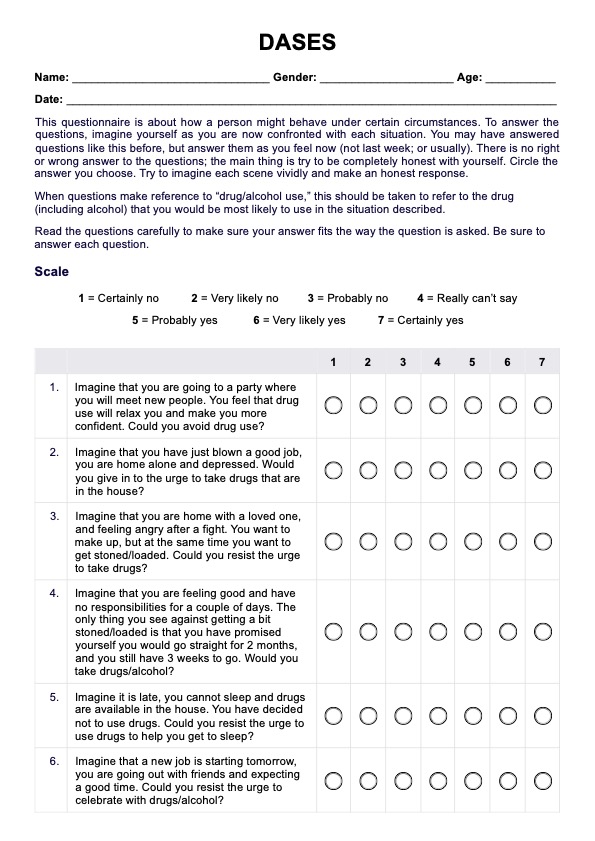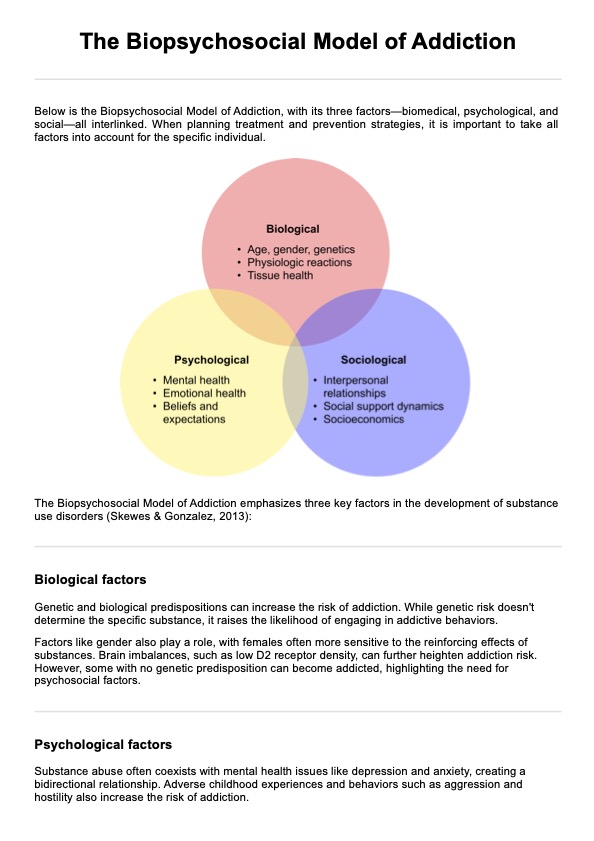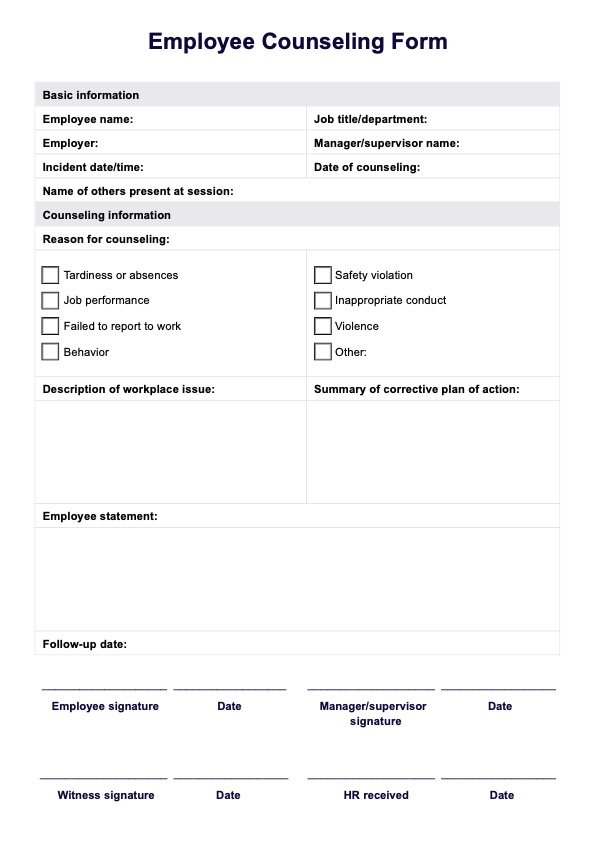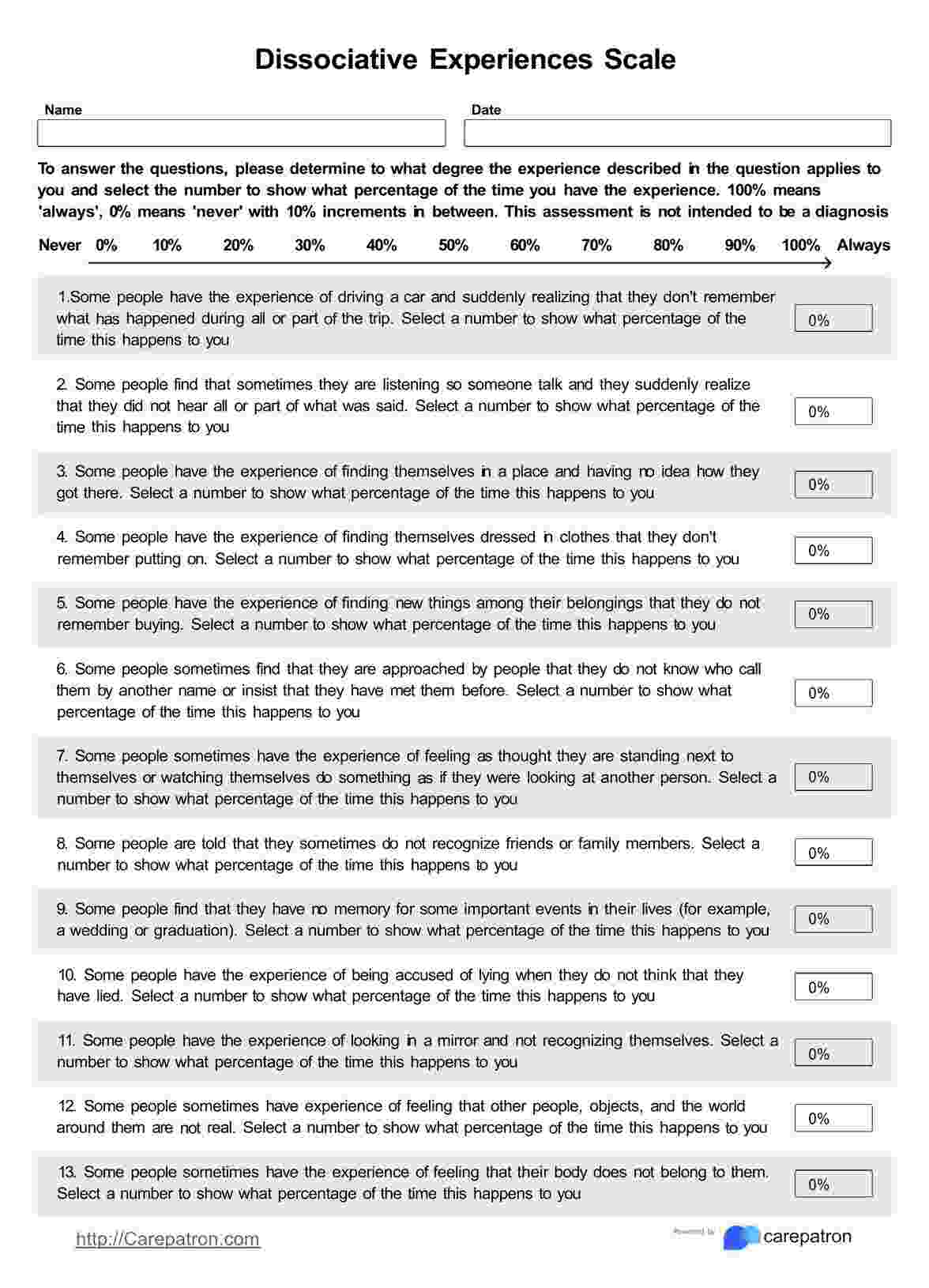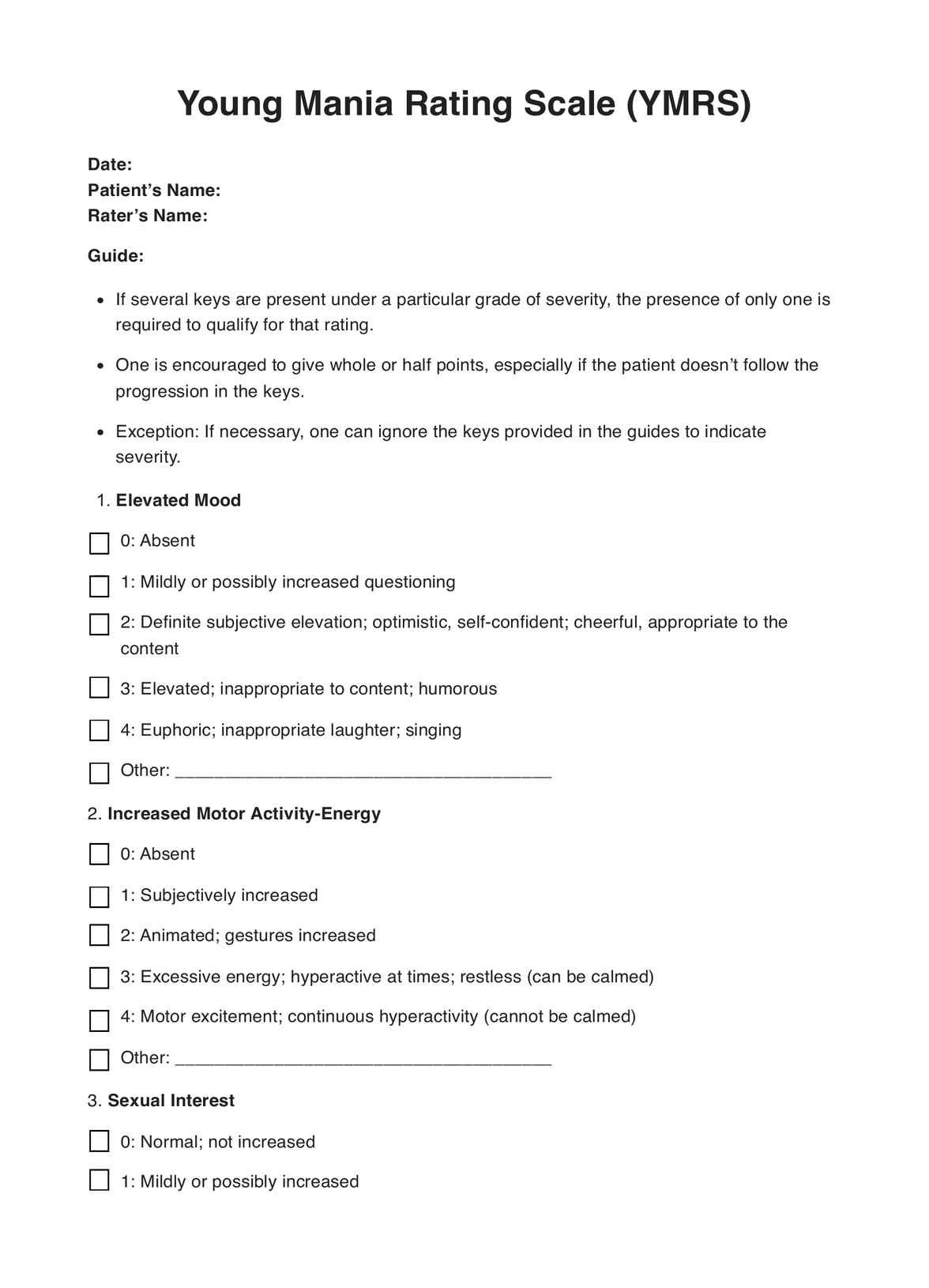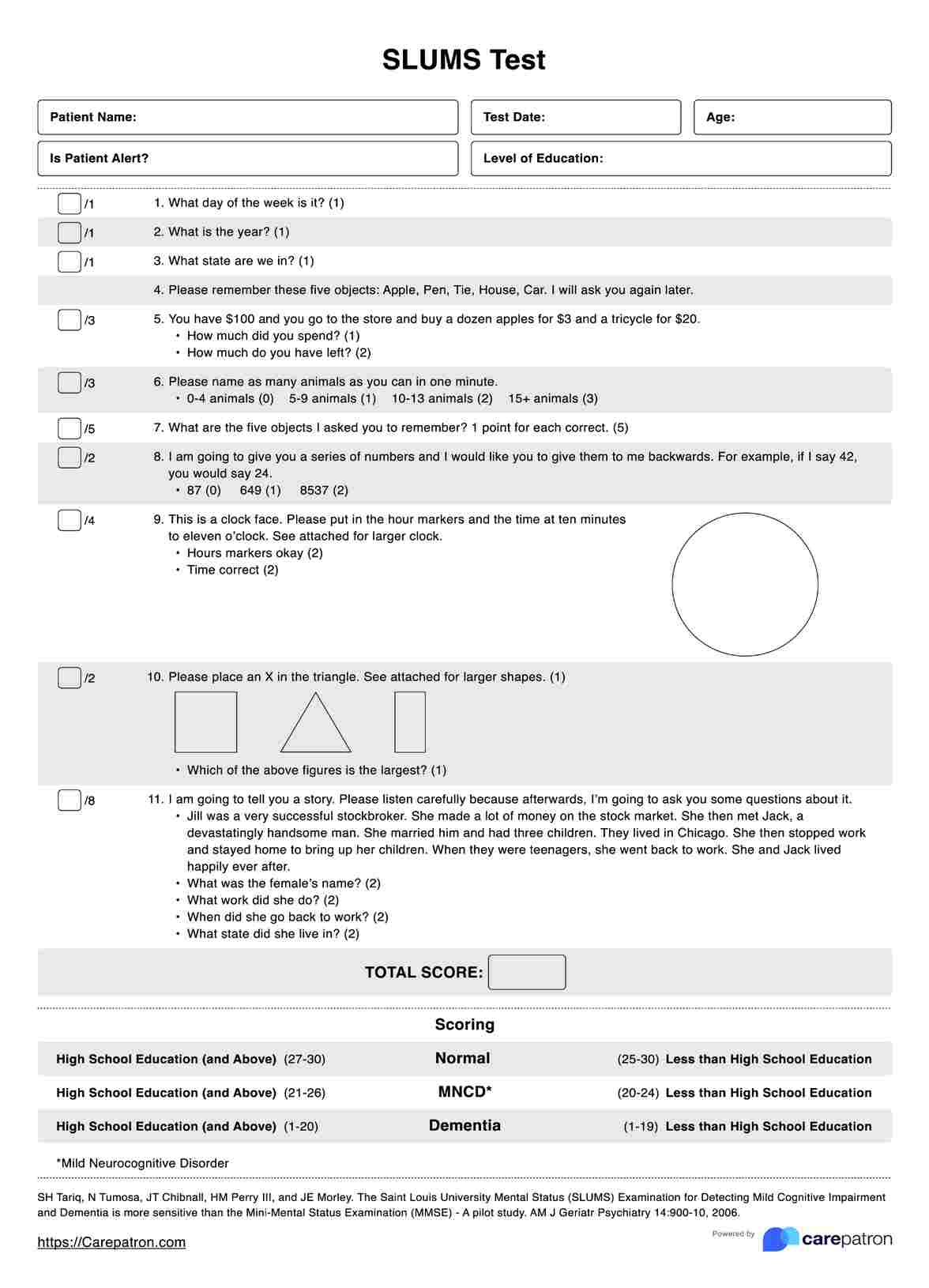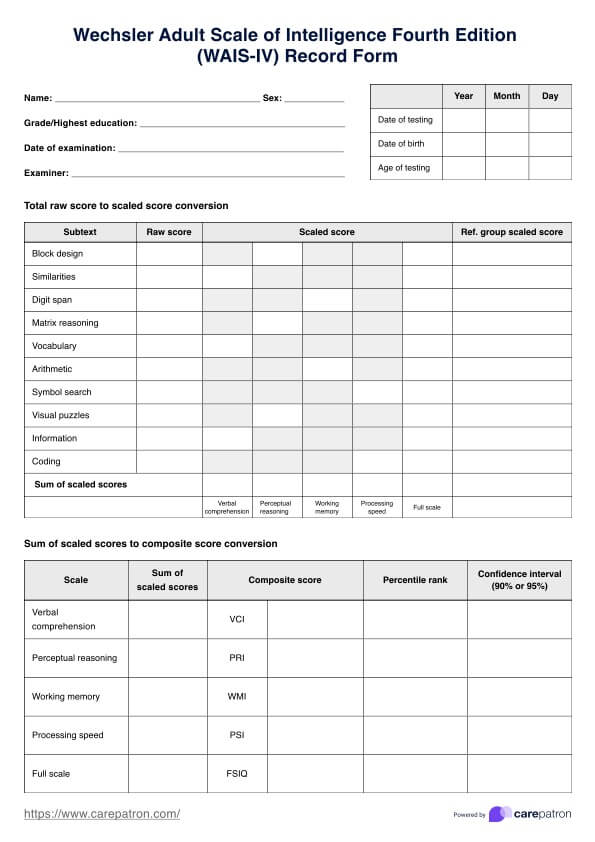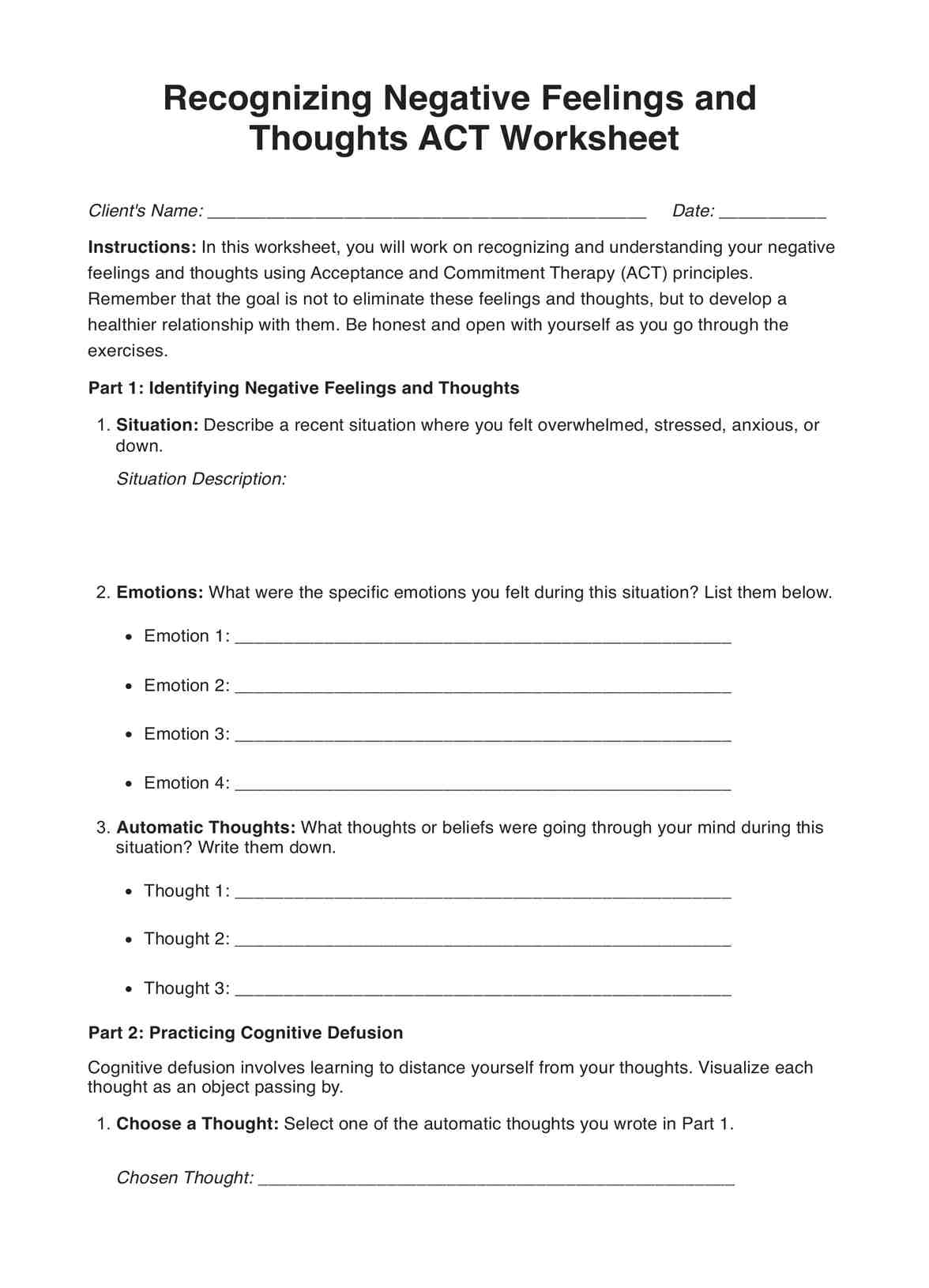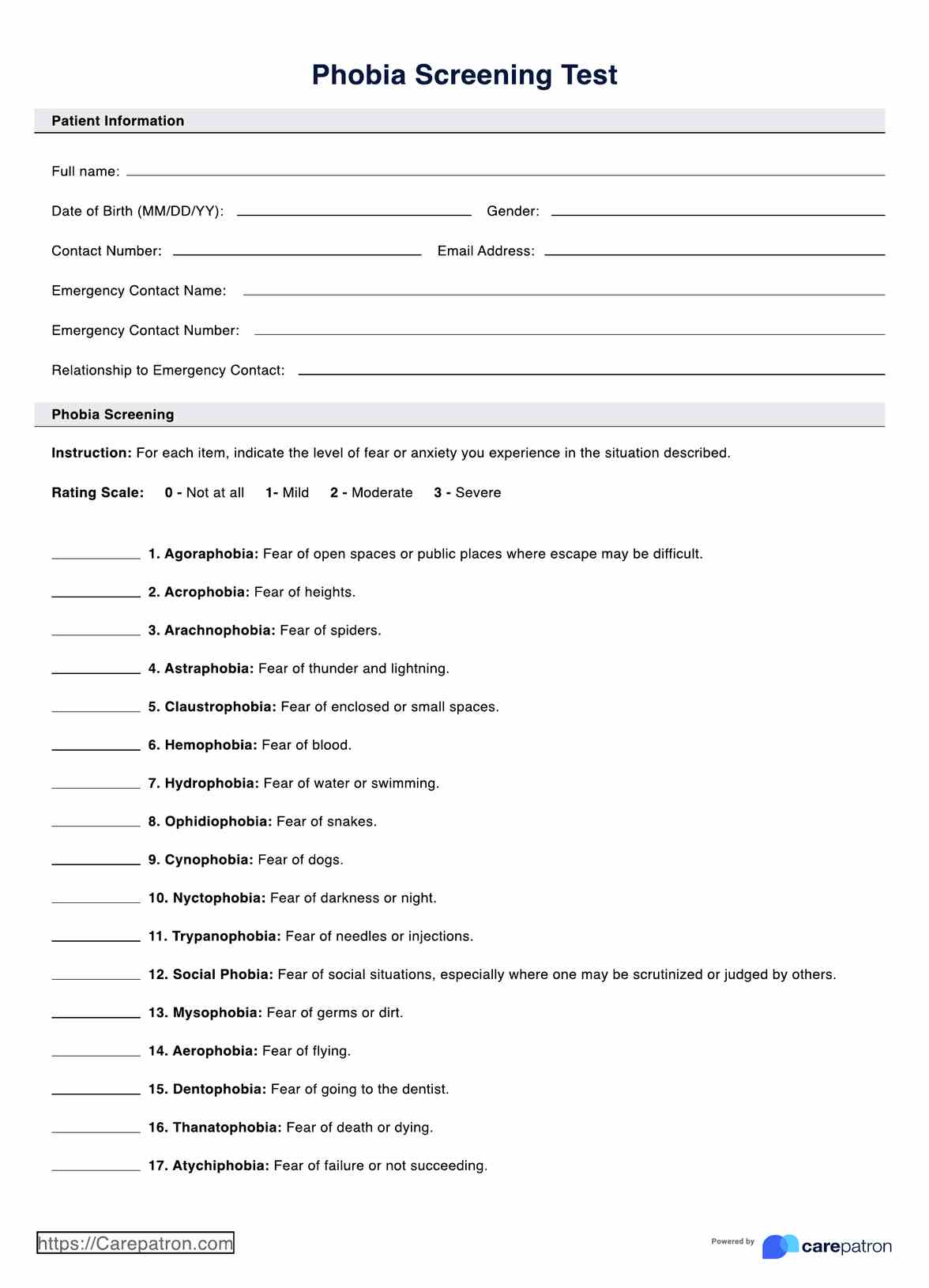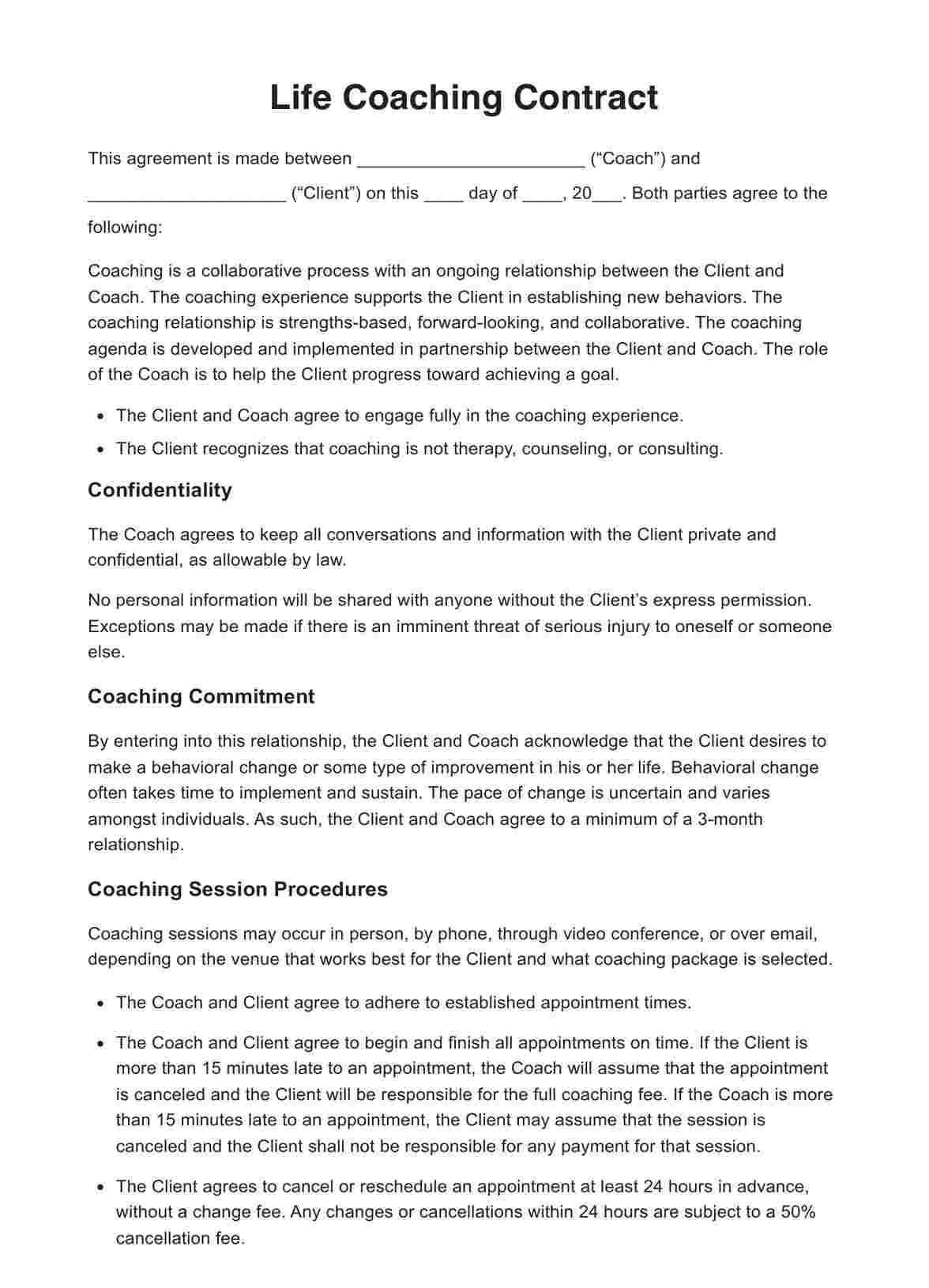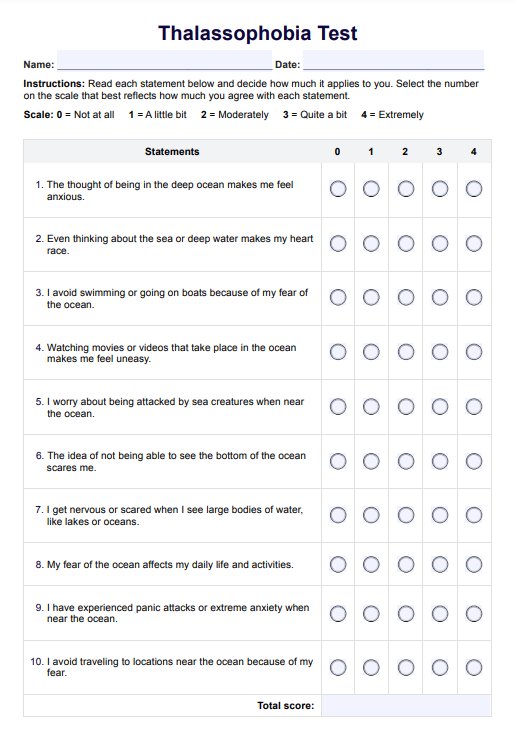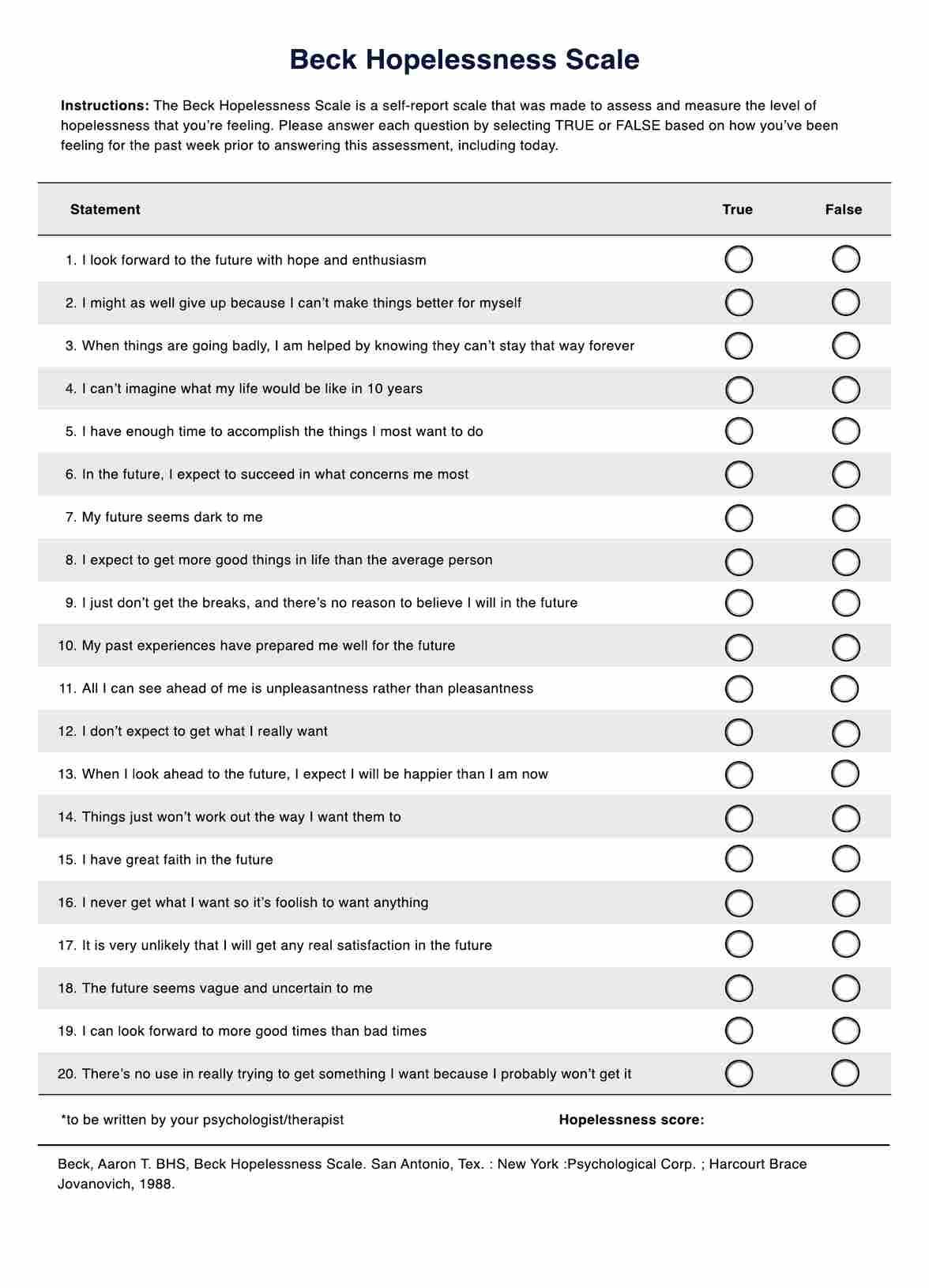Family Roles In Addiction Worksheet
Help your clients understand how family roles impact addiction. Use our Family Roles in Addiction Worksheet to support healthier family dynamics.


What is a Family Roles in Addiction Worksheet?
When someone struggles with addiction, it often affects the whole family. For example, in an addicted household, one family member’s addiction can lead to stress, confusion, and unhealthy patterns for everyone else.
A Family Roles in Addiction Worksheet is a tool counselors and therapists use to help families understand these patterns. It explains the typical roles family members often take on when coping with a person's addiction, such as the caretaker, the scapegoat, or the lost child. The worksheet helps clients recognize how these roles may have developed in response to an addicted family member or even their addiction. It also explores how emotional abuse, neglect, or stress in the family may have shaped their behavior over time. By understanding these roles, family members can start making healthier choices and work towards healing.
Counselors and therapists often use this worksheet to guide conversations in sessions, helping families set boundaries and rebuild trust. It's a practical and supportive tool that encourages recovery for the entire family, not just the person struggling with addiction.
Family Roles In Addiction Worksheet Template
Family Roles In Addiction Worksheet Example
How does our Family Roles in Addiction Worksheet work?
Here is a step-by-step guide to make the most out of this Family Roles in Addiction Worksheet:
Step 1: Download the worksheet
Click on "Download" from the template preview to get a fillable PDF copy of our worksheet. To customize this, click "Use template" to edit it within the Carepatron platform.
Step 2: Introduce the concept of family roles
Begin by explaining to the whole family that in dysfunctional families affected by addiction, members often unconsciously take on specific roles to cope with the instability and stress. These roles can become ingrained patterns of behavior that further perpetuate the dysfunction.
Step 3: Identify the roles
Present the family with a list of the common dysfunctional family roles. Encourage each member to reflect on which role they feel they have adopted or which roles they observe in their family. Note that some members may also play multiple roles in the family.
Step 4: Explore and recognize the impact of the roles
Have family members describe the behaviors, thought patterns, and coping mechanisms tied to each role and explore how these developed to manage family dysfunction. Help them understand how these roles can enable addiction and stress the importance of breaking free from these patterns to support healthier family dynamics.
Step 5: Develop strategies for change and provide support
Encourage the family to brainstorm ways to shift their roles, rebuild relationships, and create healthier dynamics, such as setting boundaries, improving communication, seeking support, and addressing the root causes of the addiction. Offer guidance on accessing additional resources like family therapy, support groups, or educational materials to help them navigate recovery and build a more stable, nurturing environment.
What are the roles of a dysfunctional family?
In dysfunctional families affected by addiction, family members - whether they may be spouses, parents, or siblings - may unconsciously adopt specific roles to cope with the instability and stress. Understanding these roles can help healthcare practitioners provide more targeted support and intervention.
The addict
This is the family member struggling with a substance use disorder. Their behaviors are often centered around obtaining and using the substance despite negative consequences. They may project feelings of blame and experience denial, manipulation, and a lack of responsibility for their actions, which can further disrupt the family dynamics.
The caretaker/enabler
The enabler is a family member who, through their actions or inactions, allows the addict to continue their substance abuse with fewer consequences. This might involve covering up for their behaviors, providing financial support, or making excuses. Enablers act out of love, fear, or a desire to keep the peace but also reinforce the addiction in the process.
The hero
The hero is usually someone who overachieves and appears responsible and successful. They strive to bring a sense of normalcy and accomplishment to the family to counterbalance the chaos of addiction. The hero seeks to "fix" the situation or the person with an addiction. They may take on excessive responsibility, excel in school or work to compensate for the addict's shortcomings, or try to control the situation through ultimatums or threats. This often leads to burnout and resentment.
The scapegoat
The scapegoat is the family member who is often blamed for the family's problems, detracting attention from the person with the addiction. This role typically involves acting out or displaying negative behaviors, leading to further distraction from the underlying issues of addiction. This can further lead to low self-esteem and rebellious behavior.
The mascot
The mascot role is played by a family member who uses humor or childlike behavior to diffuse tension and distract from the family's problems. This role can prevent other family members from addressing the underlying issues. The mascot uses humor as a coping mechanism to deal with the stress and pain within the family. By making light of the situation, the mascot seeks to relieve tension and bring some sense of joy or normalcy to the family dynamic.
The lost child
Usually, lost children are the silent, withdrawn members who avoid family conflicts and issues related to the addiction. They find solace in being socially isolated, becoming invisible within the family to cope with the neglect and lack of emotional connection. Members in the lost child role may cope by becoming self-sufficient, engaging in solitary activities, or being emotionally detached.
How does drug and alcohol addiction affect the entire family?
The effects of drug and alcohol addiction ripple far beyond the individual struggling with the substance. Here's a closer look at how addiction impacts the entire family unit:
Disrupted communication
Addiction can make open and honest communication nearly impossible. The person with an addiction may lie or manipulate to hide their substance use, while family members may walk on eggshells to avoid conflict.
Emotional strain
Witnessing a loved one struggle with addiction can be emotionally draining. Family members may experience worry, anger, shame, and helplessness.
Financial burden
Addiction can be expensive. The person with an addiction may steal money or neglect financial responsibilities to support their habit. This creates financial strain for the entire family.
Enabling behaviors
Sometimes, in an attempt to maintain peace or avoid conflict, family members may unknowingly contribute to the addict's behavior. This could involve making excuses, providing money for drugs, or cleaning up after messes.
Increased risk of abuse
The stress and chaos of addiction can increase the risk of verbal, emotional, or even physical abuse within the family. Children raised in homes with addiction are especially vulnerable.
Impact on relationships
Addiction can be a family disease and damage relationships between family members. Trust gets broken, resentment builds, and social isolation can become a coping mechanism.
Commonly asked questions
Family members adopt these roles as coping mechanisms to deal with the uncertainty, stress, and emotional turmoil that come with addiction. These roles often emerge subconsciously as individuals try to provide stability, avoid conflict, or divert attention from the addiction.
No. These roles can emerge in any family dealing with chronic stress or dysfunction, including mental health issues, chronic illness, or behavioral addictions. They are strategies to cope with emotional pain and instability.
Yes. As family dynamics evolve and individuals within the family grow or respond differently to the addiction, their roles can change. Therapy and family healing processes can also lead to a shift in roles as healthier coping mechanisms are developed.
Healing from dysfunctional family dynamics is possible in alcoholic families, though it often takes time and consistent support. For example, other family members affected by addicted parents and drug addiction may need guidance through therapy or structured tools like worksheets. These resources can help rebuild trust, improve communication, and support healthier family relationships.


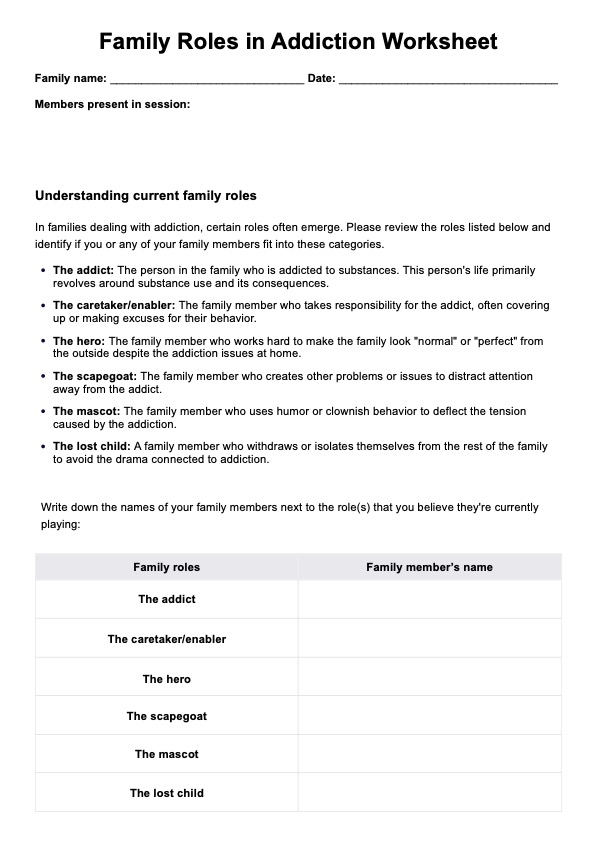
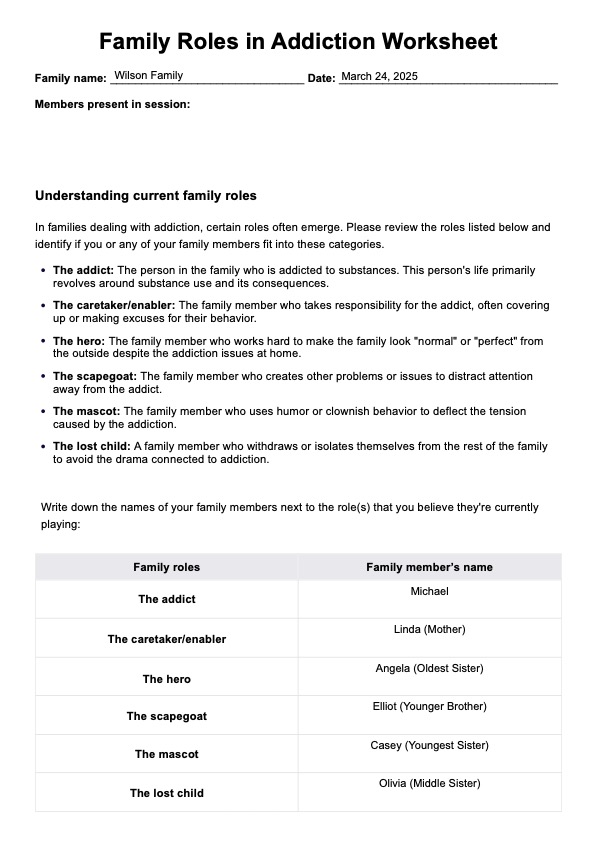

















-template.jpg)


